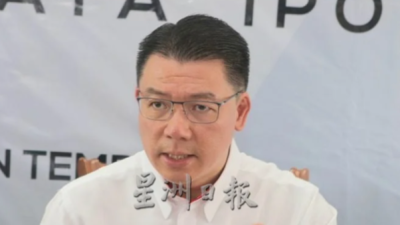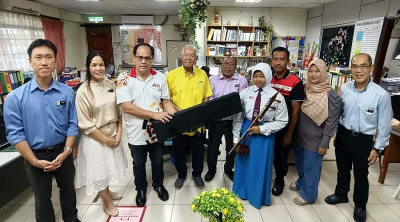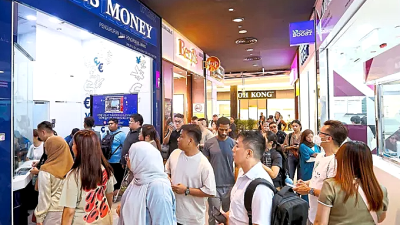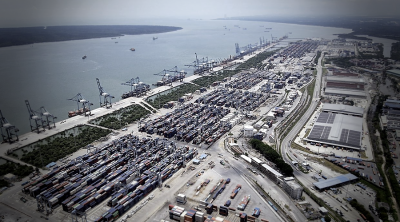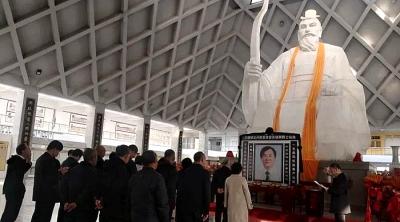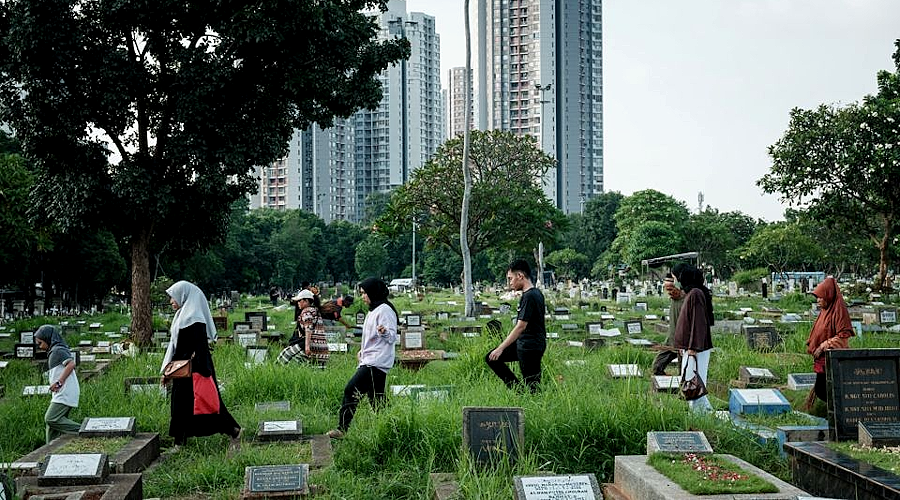
JAKARTA: Jakarta is grappling with a shortage of burial land as its cemeteries have either reached or exceeded capacity, sparking concerns over increased commercialization of resting places for the city’s dead.
At least 69 of the capital’s 80 public cemeteries (TPU), or a whopping 86.25 percent, are full, while some of the remaining 11 cemeteries are at over 80 percent capacity, according to the Jakarta Parks and Forestry Agency.
This leaves only 118,000 graves and many fear that the available plots will dwindle quickly in the coming years.
Many residents, especially those from low- and middle-income groups, depend on free burial plots at public cemeteries to bury their loved ones in Jakarta, where land is increasingly scarce and costly.
Following rapid growth in its population over the past few years, the Jakarta provincial administration has built new public cemeteries as well as expanded the capacity of existing TPU.
The latter includes stacked burials, or the practice of burying more than one casket atop others in a single vertical plot.
A 2007 bylaw on cemeteries allows the use of a single grave for burying the remains of more than one person, typically from the same family.
The original plot must be at least three years old before another body can be added to the grave, and the maximum depth of the topmost casket must be 1 meter below ground.
Even so, the gap between available space and demand remains large, and many cemeteries have been forced to stop offering new plots due to insufficient land.
One such example is the Grogol Kemanggisan Public Cemetery in West Jakarta. Its 2-hectare Muslim burial site contains around 17,000 bodies, some sharing the same plot with up to four others.
“But we still receive burial requests from nearby residents. We don’t have any options other than to refuse them,” cemetery employee Nunung Nurhayati, 45, told The Jakarta Post on Monday.
Since the cemetery had exceeded capacity, Nunung said many rejected families had no choice but to face extra costs, either from traveling afar to bury their dead at another TPU or from interring them at a private cemetery.
Meanwhile, some private graveyards have set steep prices for a single grave.
Jakarta’s public cemeteries experienced a shortage of plots after the COVID-19 pandemic broke out in 2020 and the capital soon became the nation’s epicenter.
The Health Ministry’s final tally for the city dated June 21, 2023, puts the number of people who died from the viral disease at 16,098.
Governor Pramono Anung announced last week the city administration’s plan to build more TPU, including the conversion of several Covid-19 graveyards.
He also suggested that more public cemeteries could increase stacked burials to address the land shortage issue.
However, special gubernatorial staffer Chico Hakim underlined that the practice would be limited to three bodies per plot, saying this would be “safer for the [public’s] health” as well as structurally tidier.
“The problem is caused by the high population density in Jakarta, as the city has more than 10 million residents, coupled with limited land availability,” Chico said.
He added the city was mulling over a plan to build new TPU in the neighboring cities of Bekasi in West Java or Tangerang in Banten.
While the limited availability of grave plots might be rooted in land shortage, it also exposed the poor urban planning in Jakarta, noted Rakhmat Hidayat, an urban sociologist from Jakarta State University.
According to him, the burial space crisis is more to do with the city prioritising commercial development rather than long-term guarantees for its residents’ right to a proper and accessible final resting place for their mortal remains.
“The problem has been plaguing the city for the longest time,” Rakhmat said.
He also warned that a prolonged crisis would mainly burden the urban poor, who might be left without access to free cemetery plots and end up having to seek burial sites in neighboring cities.
ADVERTISEMENT
ADVERTISEMENT












